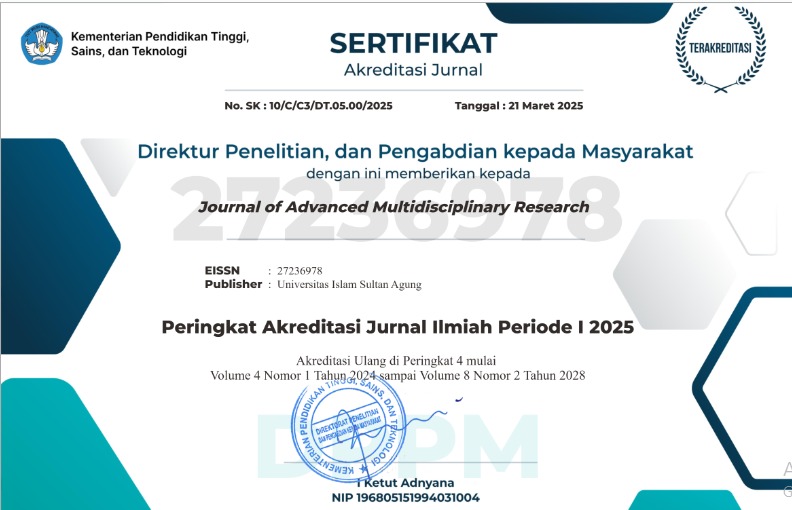The Analysis of Teacher Policy in Indonesia
Abstract
The present qualitative research aims to investigate teacher policy in Indonesia viewed from international teacher standard revealed in the Teacher Policy Development Guide of United Nation. There are four dimensions as the focus of analysis: underpinning values, the purpose, key principles of implementation and key dimension for comprehensive teacher policy. Content analysis was employed to gauge the data from the rule of law on teacher and lecturer in Indonesia number 14 year 2005 about teacher and lecturer that is more specifically broken down into policy number 74 year 2008 about teacher. In addition, the researcher carefully investigated four dimensions revealed in the Indonesian teacher policy document as well as highlighted the results in the form of table. The findings confirmed that Indonesia has a comprehensive policy dealing with education system and teacher which reflects several international standards and features as well as accommodates local values. On the other hand, teacher policy in Indonesia is still presented in general language instruction without a specific implementation guide. To conclude, both policies have different languages and terminology in some extend but it has the same basic idea in terms of human right and democratic values both in the context of teacher policy and education in general.Â
Keywords
Full Text:
PDFReferences
Alireja, I., & Spicer, B. (2008). Indonesian Education System: Influencing Policy to Achieve Results. AusAID.
Asian Development Bank. (2015). Education in Indonesia: Rising to the Challange.. OECD Publishing.
Bank, A. D. (2014). Teacher Absenteeism in Indonesia: Policy Brief (Indonesia). Jakarta. Asian Development Bank. https://www.adb.org/publications/teacher-absenteeism-indonesia-policy-brief
Bell, L. A. (2020). Education Policy: Development and Enactment—The Case of Human Capital. In G. Fan & T. S. Popkewitz (Eds.), Handbook of Education Policy Studies: Values, Governance, Globalization, and Methodology, Volume 1 (pp. 31–51). Springer. https://doi.org/10.1007/978-981-13-8347-2_2
Bridgman, P., & Davis, G. (2003). What Use is a Policy Cycle? Plenty, if the Aim is Clear. Australian Journal of Public Administration.
Chang, M. C., Al-Samarrai, S. S., Ragatz, A. B., & Stevenson, R. (2014). Teacher Reform in Indonesia: The Role of Politics and Evidence in Policy Making. Jakarta.
Chang, M. C., Shaeffer, S., Al-Samarrai, S., Ragatz, A. B., de Ree, J., & Stevenson, R. (2014). Teacher Reform in Indonesia: The Role of Politics and Evidence in Policy Making. Washington, DC. World Bank. https://doi.org/10.1596/978-0-8213-9829-6
Hapsariputri, W. M. (2010). Evaluating Teachers’ Quality Improvement Policy in Indonesia To meet the UNESCO-EFA criteria. Delft University of Technology.
Mahpudz, A. (2014). Policy Analysis Improvemnet of Competence and Professionalism of Teachers in Order to Improve teh Quality of the Organisation of Education in the District SIGI Central Sulawesi Province. Sulawesi. Jurnal Penelitian Kebijakan Pendidikan.
Nurhattati, N., Matin, M., Buchdadi, A., & Yusuf, C. (2020). Teacher Certification in Indonesia: An Education Policy Analysis. Universal Journal of Educational Research, 8, 1719–1730. https://doi.org/10.13189/ujer.2020.080508
Oxford. (2005). Oxford Leaner’s Dictionary of Current English. Oxford University Press.
Parson, W. (1995). Public Policy: An Introduction to the Theory and Practice of Policy Analysis. Edward Elgar.
Perry, A., Amadeo, C., Fletcher, M., & Walke, E. (2010). Instinct or Reason: How education policy is made and how we might make it better. Education Trust.
Ravanelli, D. M., Putri, R. P. E., Putri, Z. K., & Jannah, L. M. (2020). Teacher’s Readiness Level in Implementing Work from Home Policy in Indonesia. Iapa Proceedings Conference, 637–661. https://doi.org/10.30589/proceedings.2020.431
Syamsuri, A. S., Ishaq, I., & Chaeruman, U. A. (2020). Teacher Certification Education: A Review Competence of Indonesian Language and Literature. UtopÃa y Praxis Latinoamericana, 25(6), 303–313.
Taylor, S., Rizvi, F., Lingard, B., & Henry, M. (2006). Educational Policy and the Politics of Change. Routledge.
Tobias, J., Wales, J., Syamsulhakim, E., & Suharti. (2014). Towards Better Education Quality: Indonesia’s Promising Path. Overseas Development Institute.
UNESCO. (2014). UNESCO Education Strategy 2014–2021. United Nations Educational, Scientific and Cultural Organisation.
UNESCO. (2015). Teachers Policy Deevelopment Guide. United Nations Educational Organisation.
Vegas, E., & Ganimian, A. (2013). Theory and Evidence on Teacher Policies in Developed and Developing Countries. Inter-American Development Bank.
World Bank. (2014). World Bank and Education in Indonesia. World Bank Group.
DOI: https://dx.doi.org/10.30659/jamr.3.2.107-114
Refbacks
- There are currently no refbacks.
Copyright (c) 2022 Soni Ariawan
Journal of Advanced Multidisciplinary Research (JAMR) is published by Research and Community Service Department (LPPM) Universitas Islam Sultan Agung Semarang, Indonesia.
Address: Jl. Kaligawe Raya Km. 4 Semarang, Indonesia.





